LEAN ON ME KENTUCKY
Presented by Prevent Child Abuse Kentucky Kentucky Department for Community Based Services
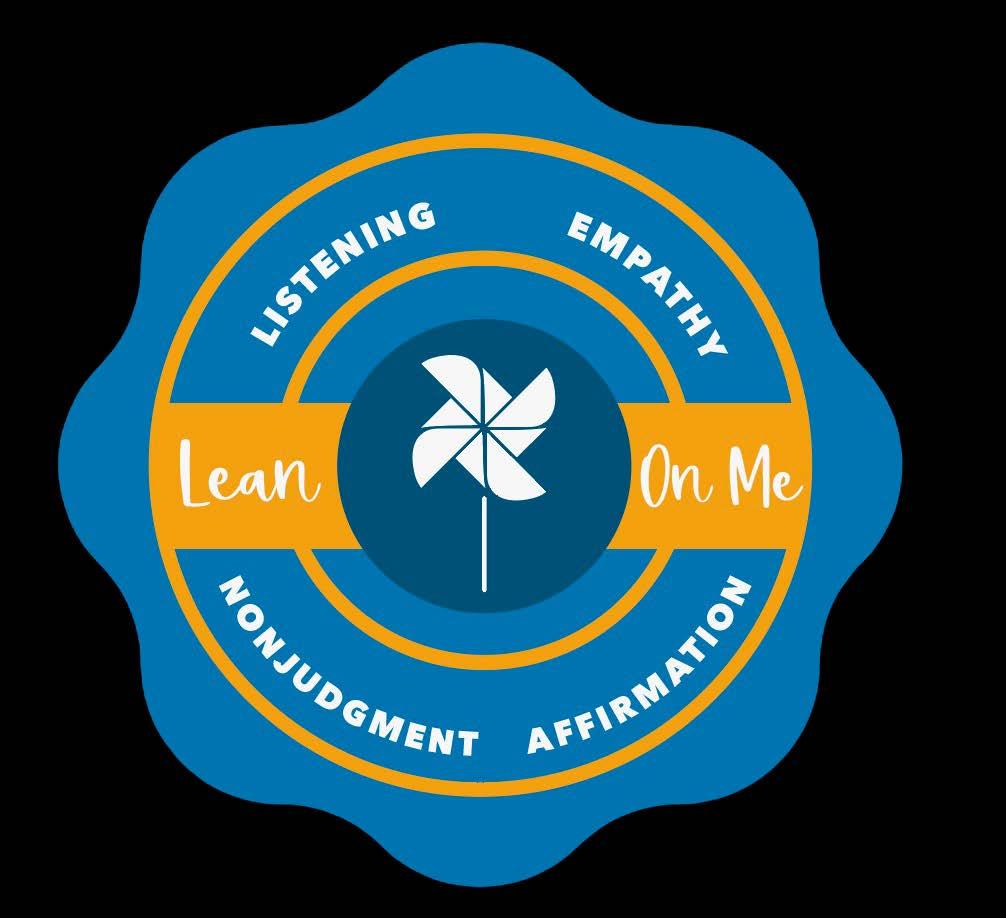
A RESOURCE TO BUILD STRONG COMMUNITIES


This project is funded in part or in whole with state or federal funds through a contract (#PON2 736 2000003480) with the KY Cabinet for Health and Family Services. This content was replicated with permission from Prevent Child Abuse Arizona
Every person has the power to make a difference in a child or family’s life. What if we had stronger community involvement in the health of our families and children? What would our Commonwealth look like then? Prevent Child Abuse Kentucky and partners have compiled data from evidence-based frameworks and conversations in 10 different regional focus groups, inspired by one goal: Building stronger families and communities.
… BECAUSE CHILDHOOD LASTS A LIFETIME ™ INTRODUCTION
Meet prevention specialists, service providers, and community members with lived experience, all of whom are finding new ways to strengthen their communities.*
This free resource has been provided by Prevent Child Abuse Kentucky in partnership with the Department for Community Based Services. Share it and start a conversation!
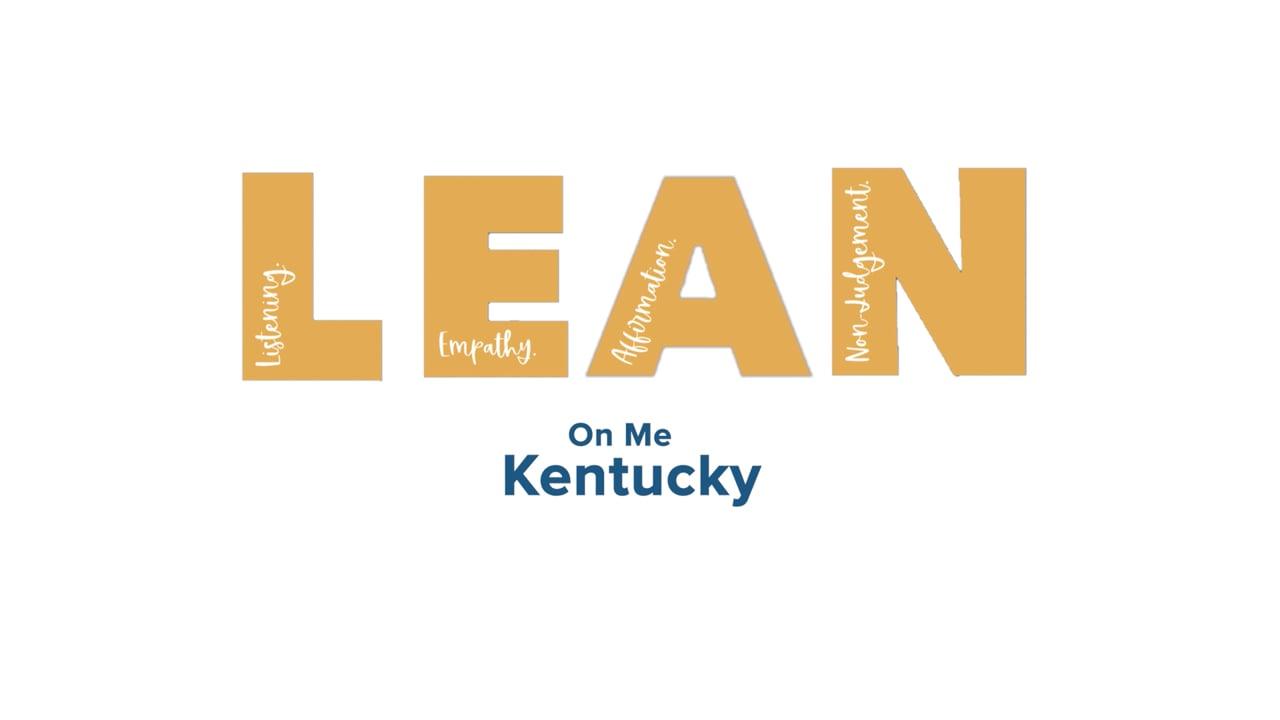


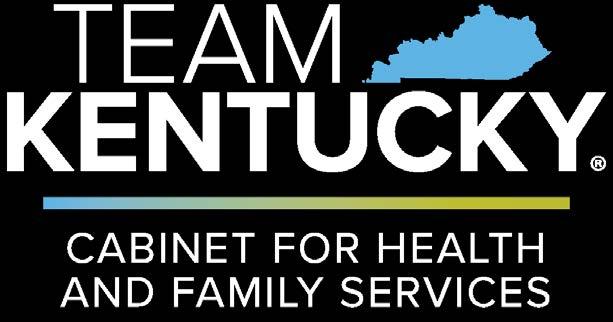




*This toolkit is not intended as an aid in an acute crisis. If you or someone you know is in crisis, please call 911.

ON ME
A common theme to come out of this project is people don’t know where to turn for help; and if they do know, they feel ashamed asking for it. All too often, there is stigma associated with asking for help. Start normalizing asking for help and de-escalating the situation by using the LEAN On Me acronym of Listening, Empathy, Affirmation and, Non-judgement.
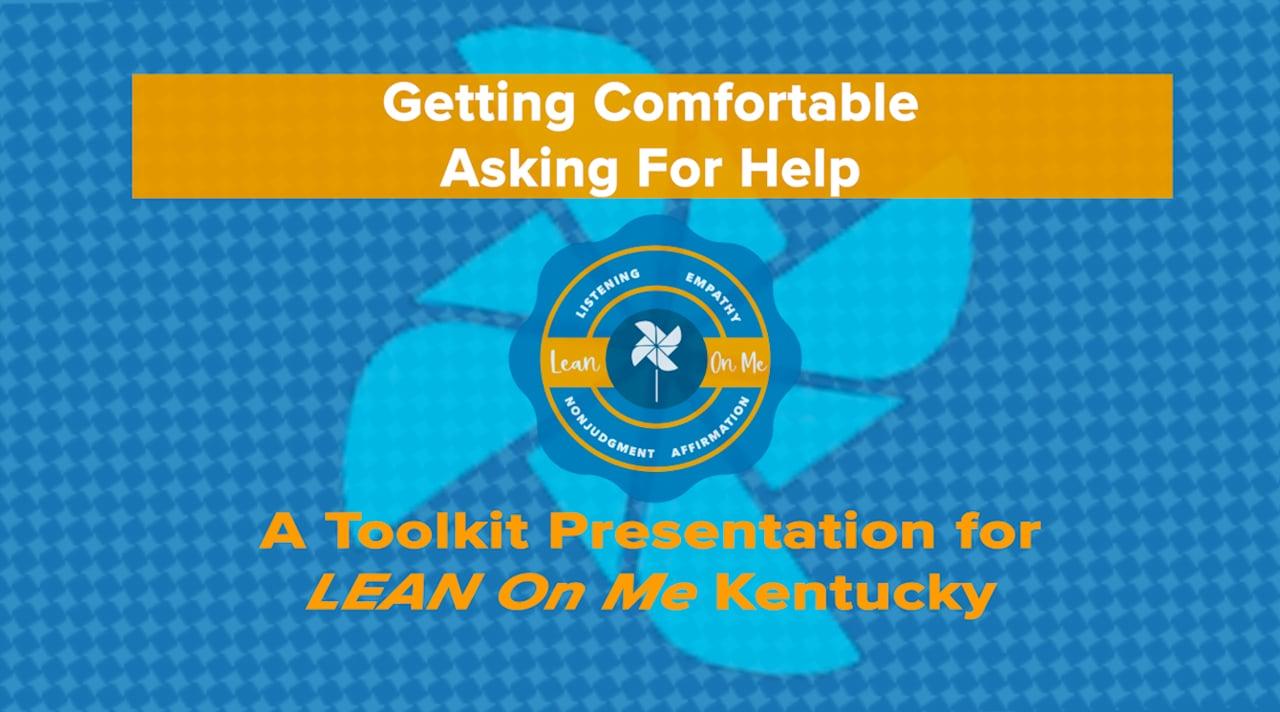
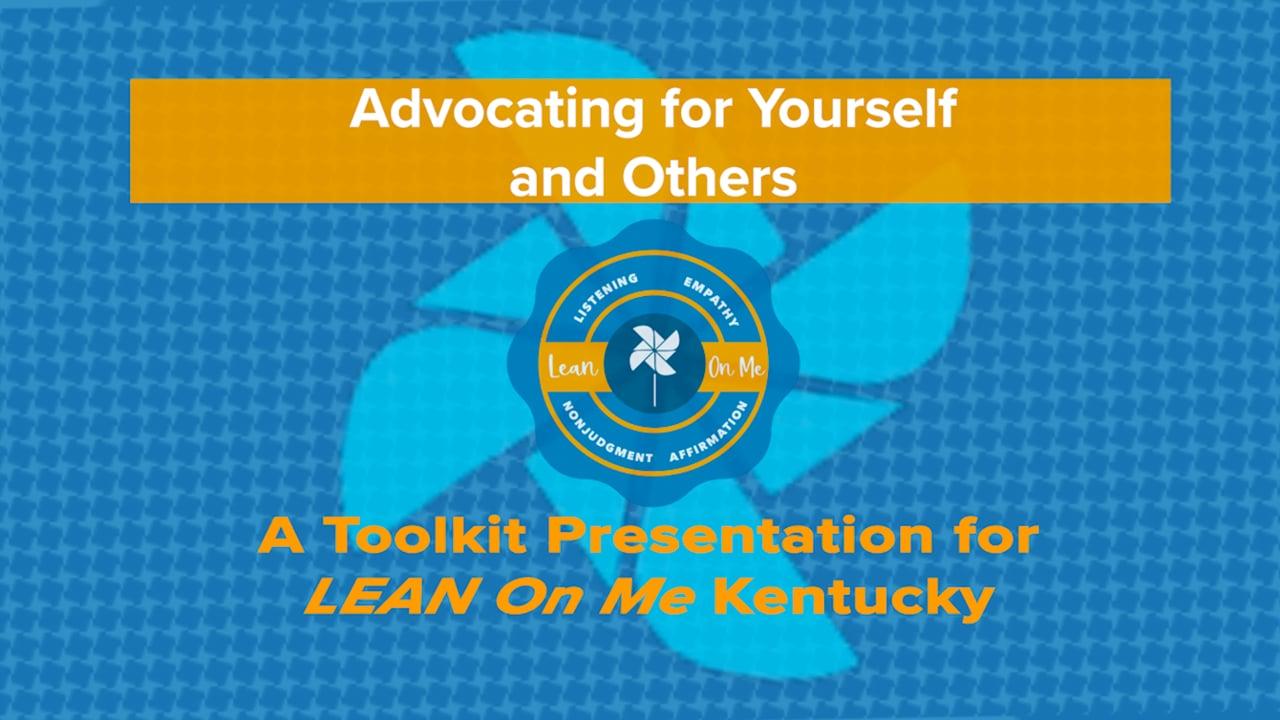
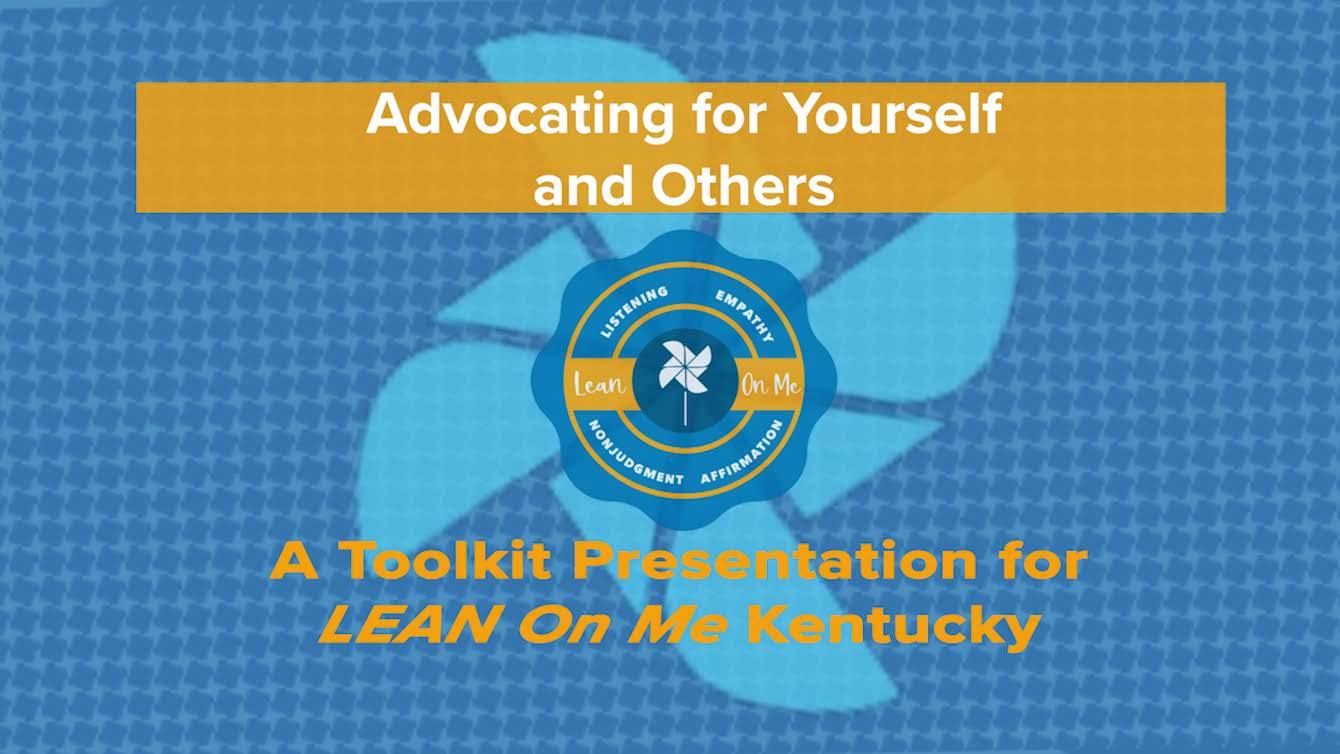

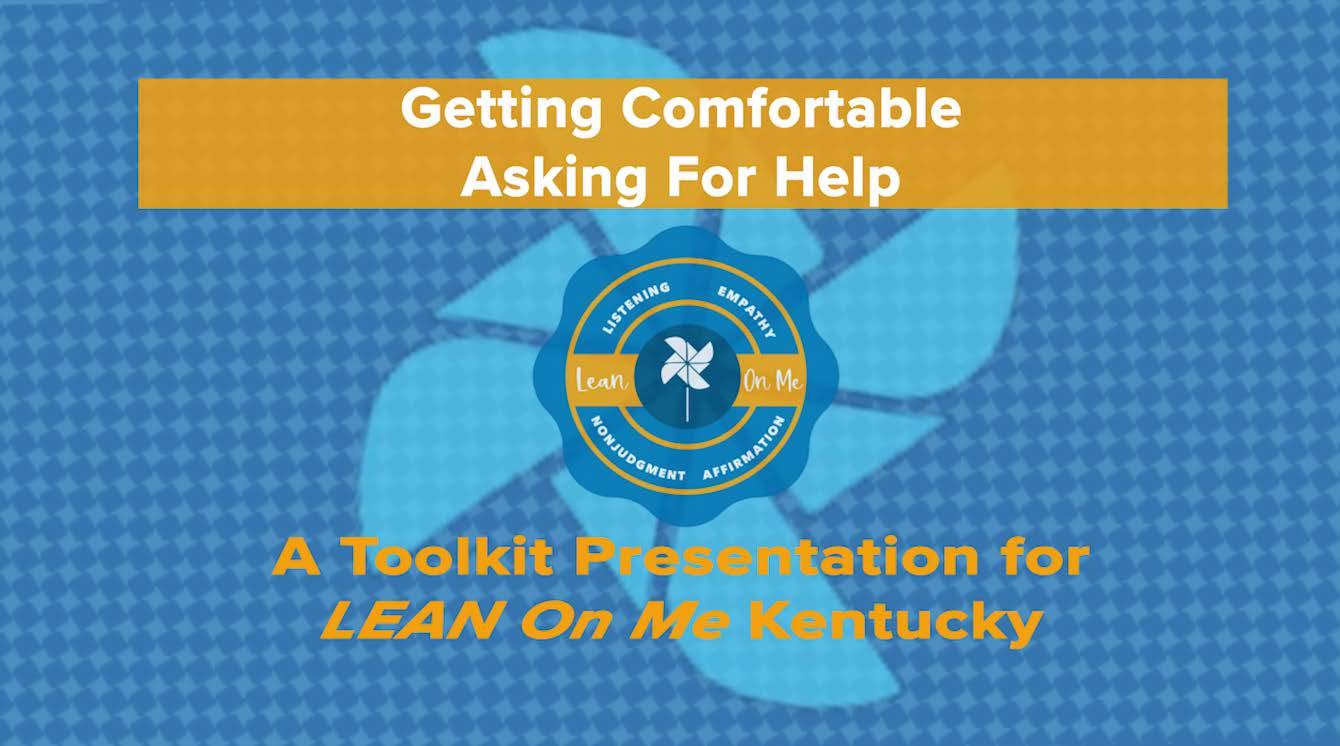

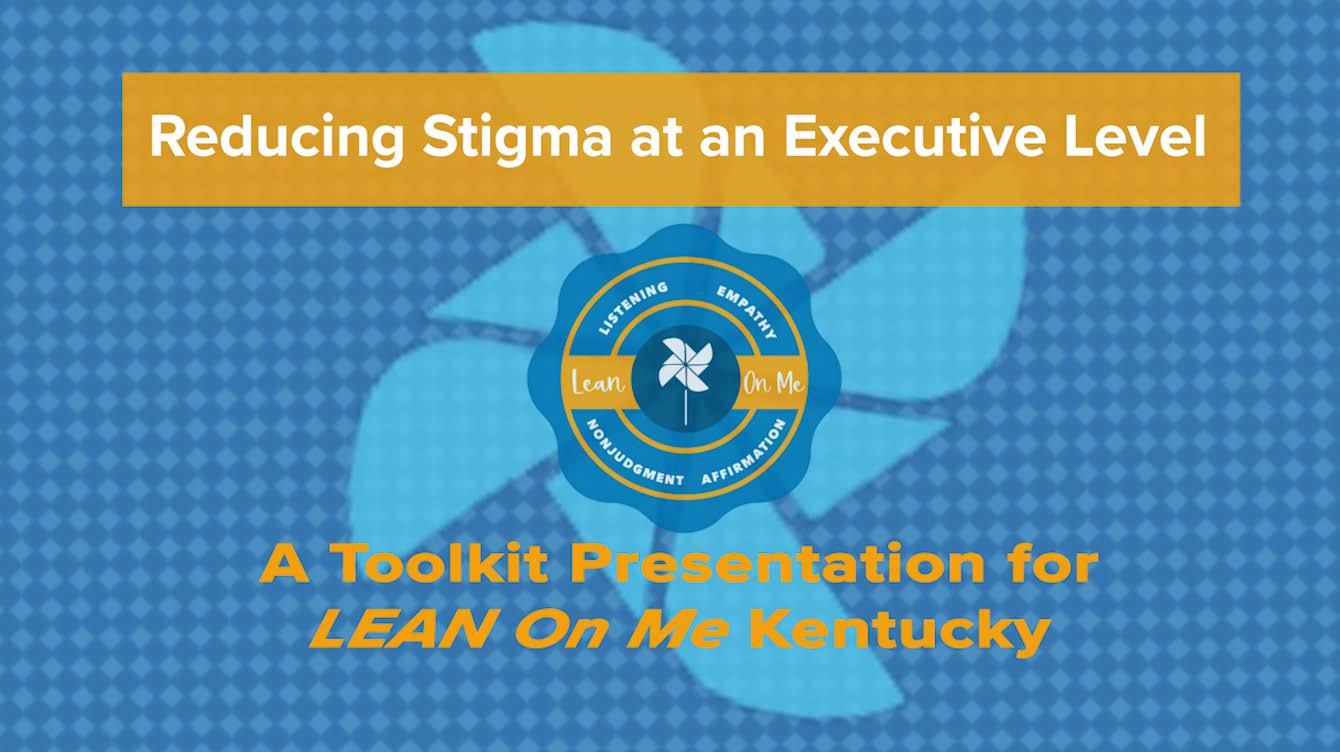

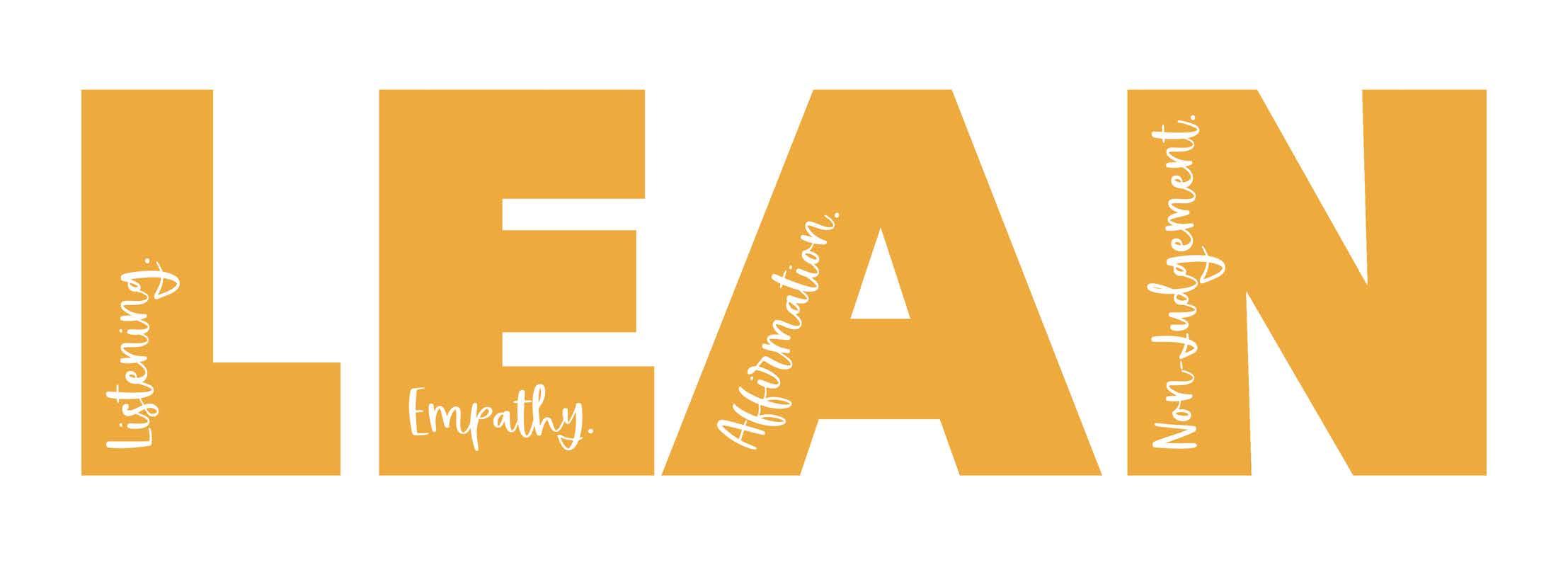

She brings her experience to statewide conversations about social services. knows the impact of practicing LEAN On Me in her work and her life. comfortable with asking for help.
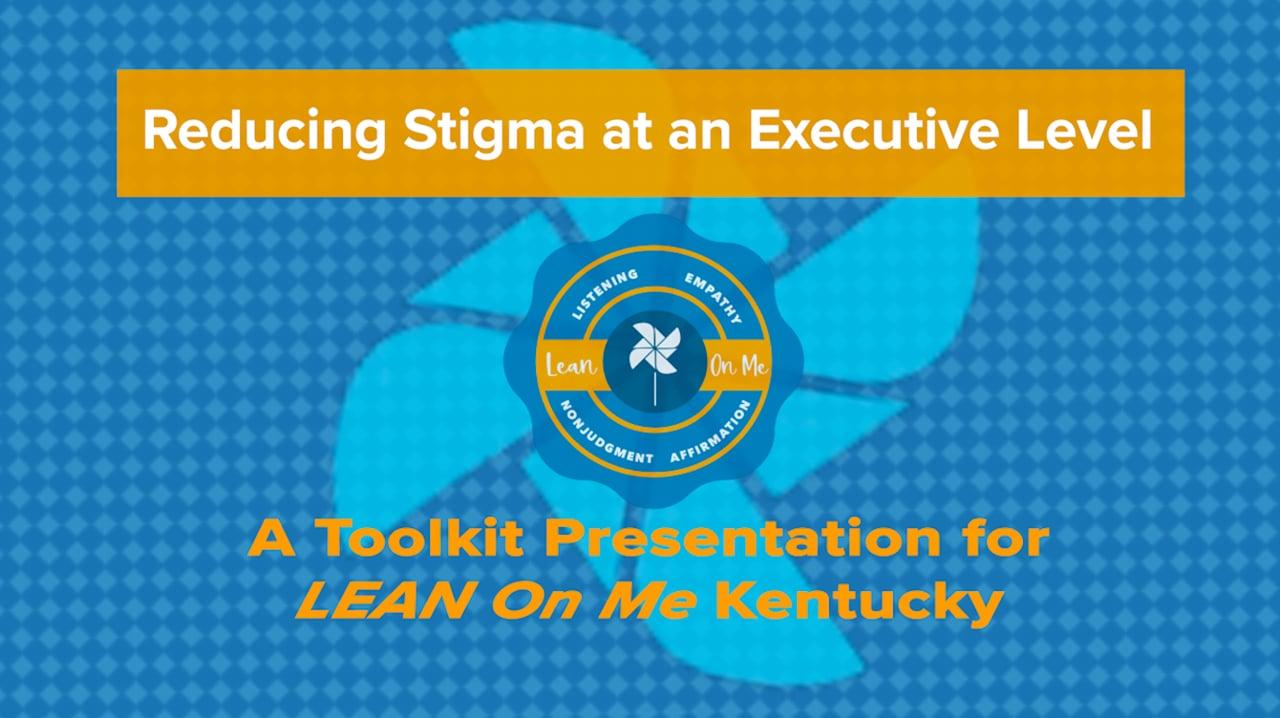
THE WHY



We can do better.
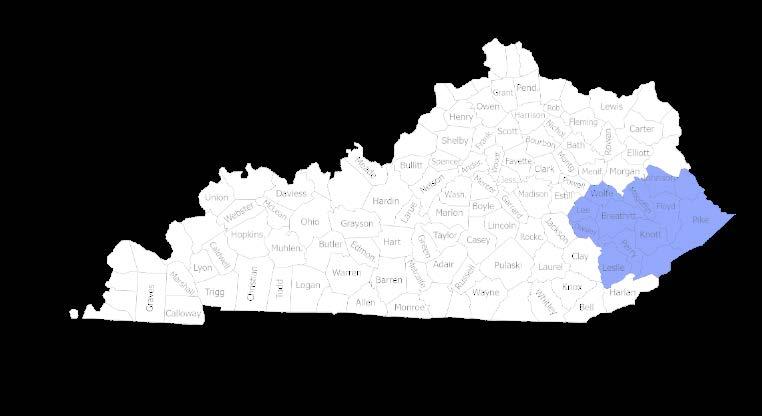
When our communities are equipped to support people, we are empowered to strengthen families, decrease maltreatment, and ensure healthy outcomes for kids. illustrates how manners … and a little kindness go a long way when interacting with people who have different backgrounds.

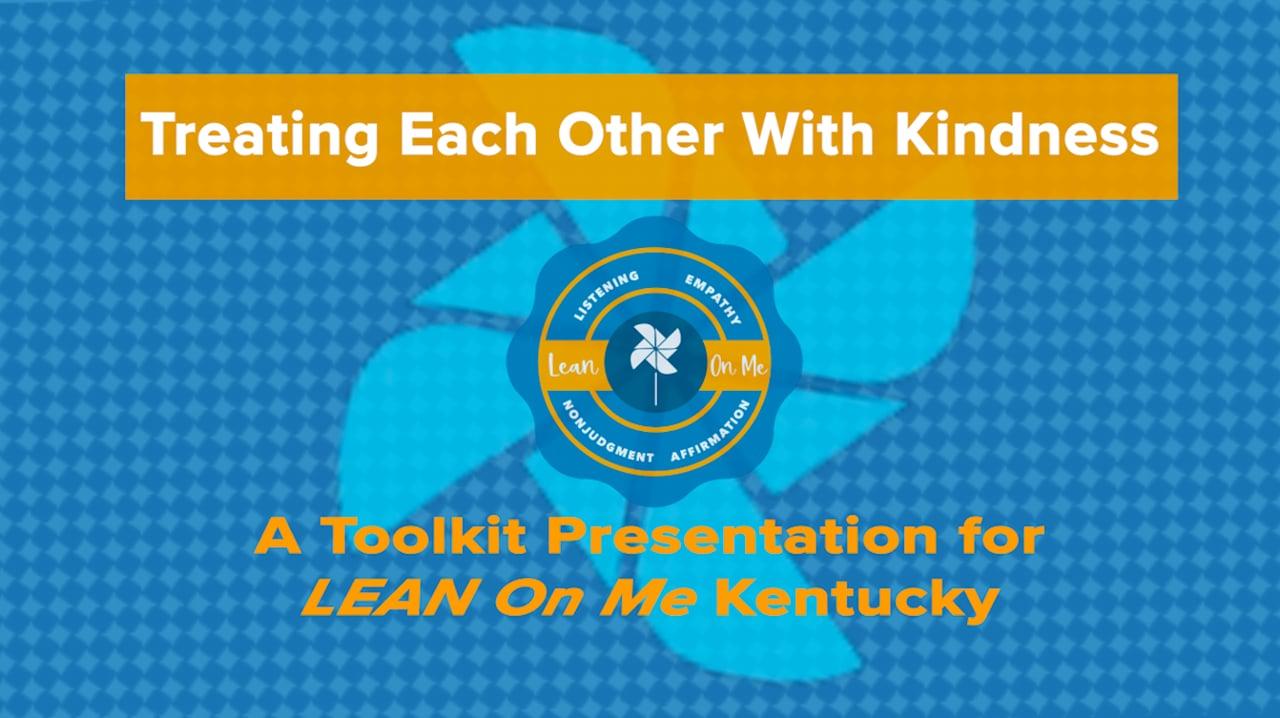


“Value people as human beings. Remember they did not wake up one morning and decide they wanted to be in this place.
Relate. Empathize. Those are ways we can all support families in need.”

the Brighton Center, Sommer has been on the front lines of the battle. She lives and breathes the LEAN On Me philosophy.
a faith leader has shown him that it’s not for an hour on Sunday, but 24/7, that faith can play a role in strengthening families across the Commonwealth.

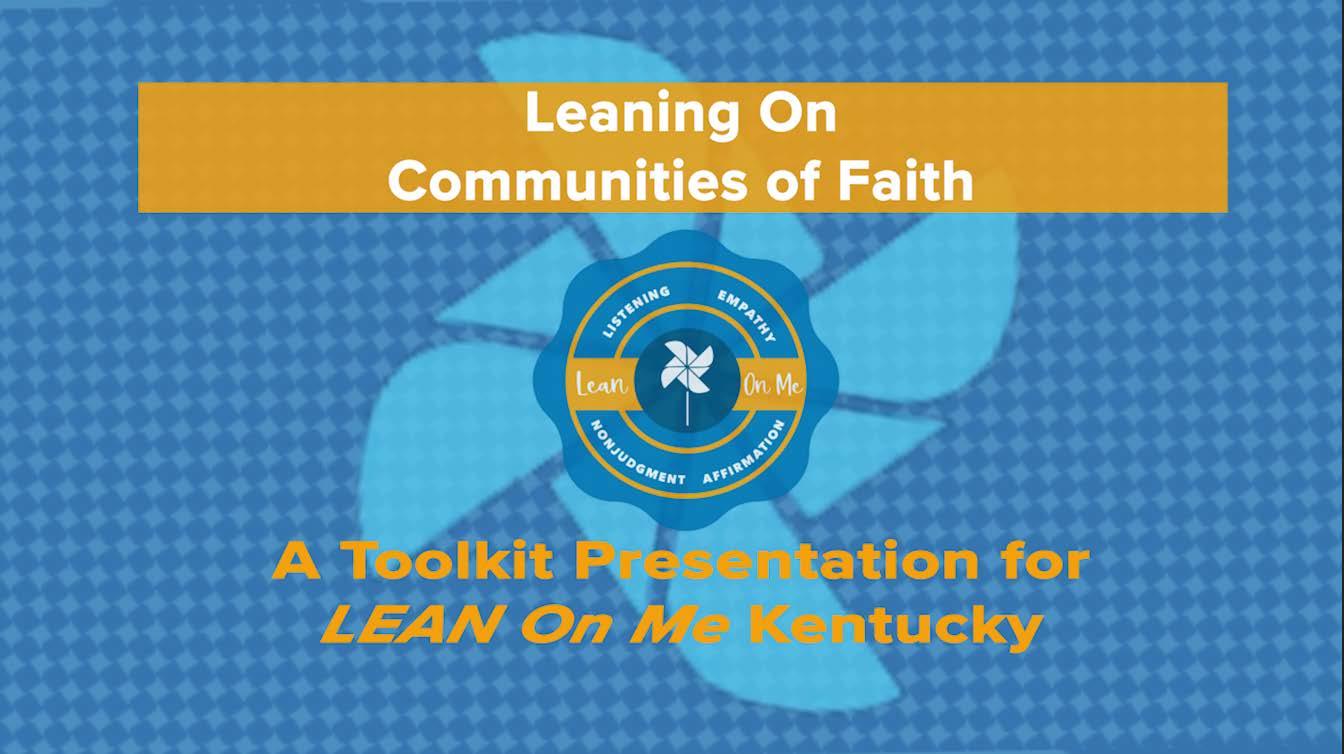 ― Focus Group Participant (Eastern Mountain Region, July ’22)
― Focus Group Participant (Eastern Mountain Region, July ’22)
THE WHAT



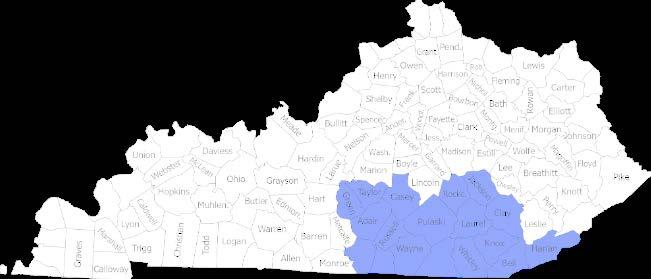
There’s no one right tool. This toolkit is designed to help build stronger families and communities by discovering which tools work best for them. The LEAN On Me toolkit encourages participants to use tools that include; on-judgement.
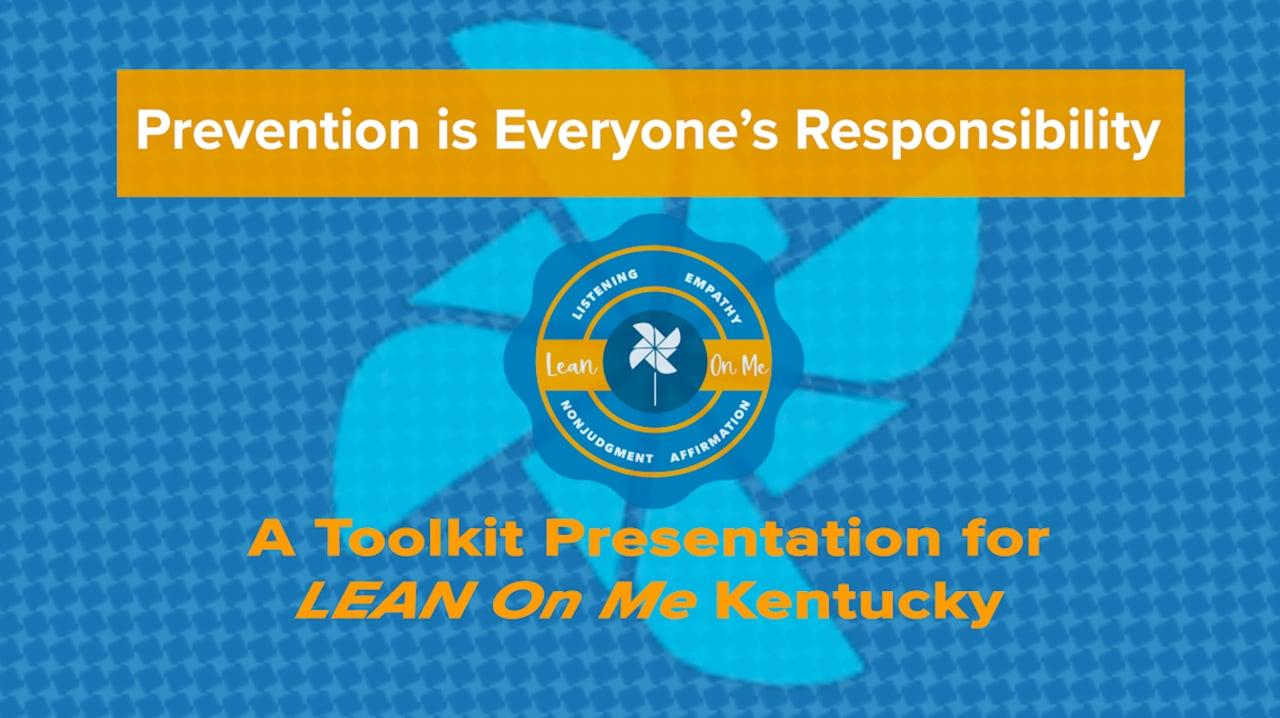
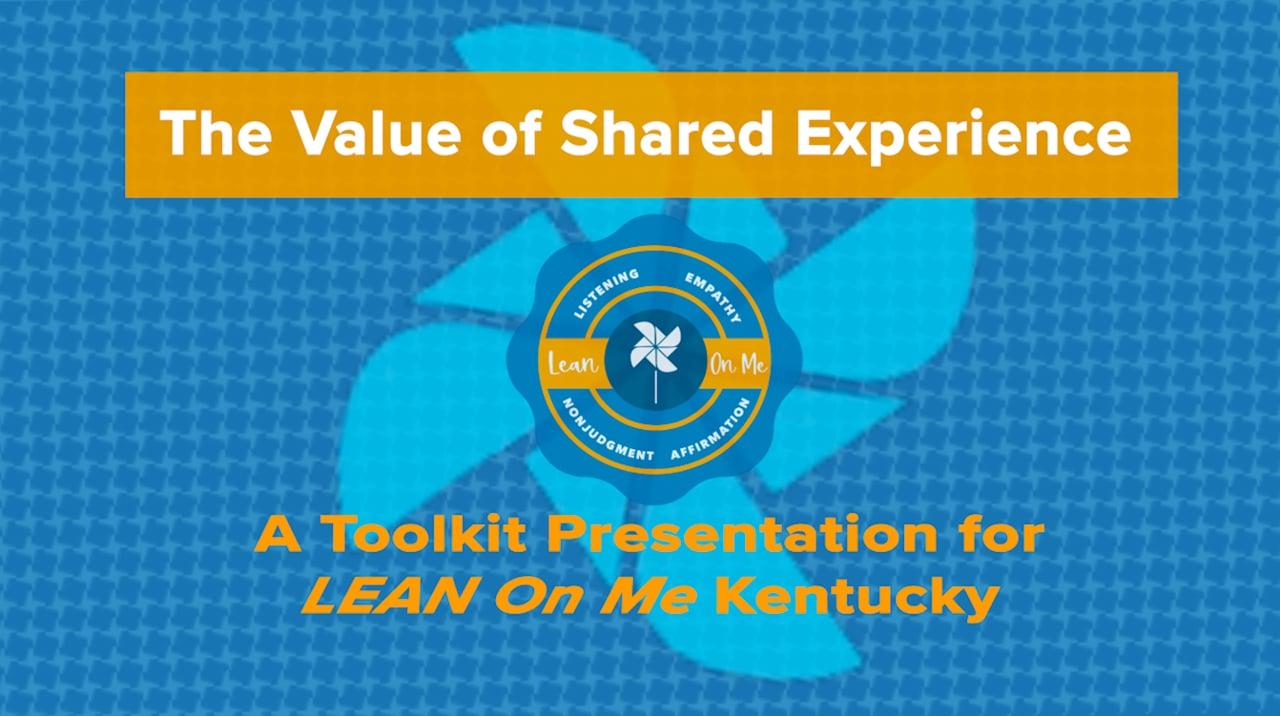


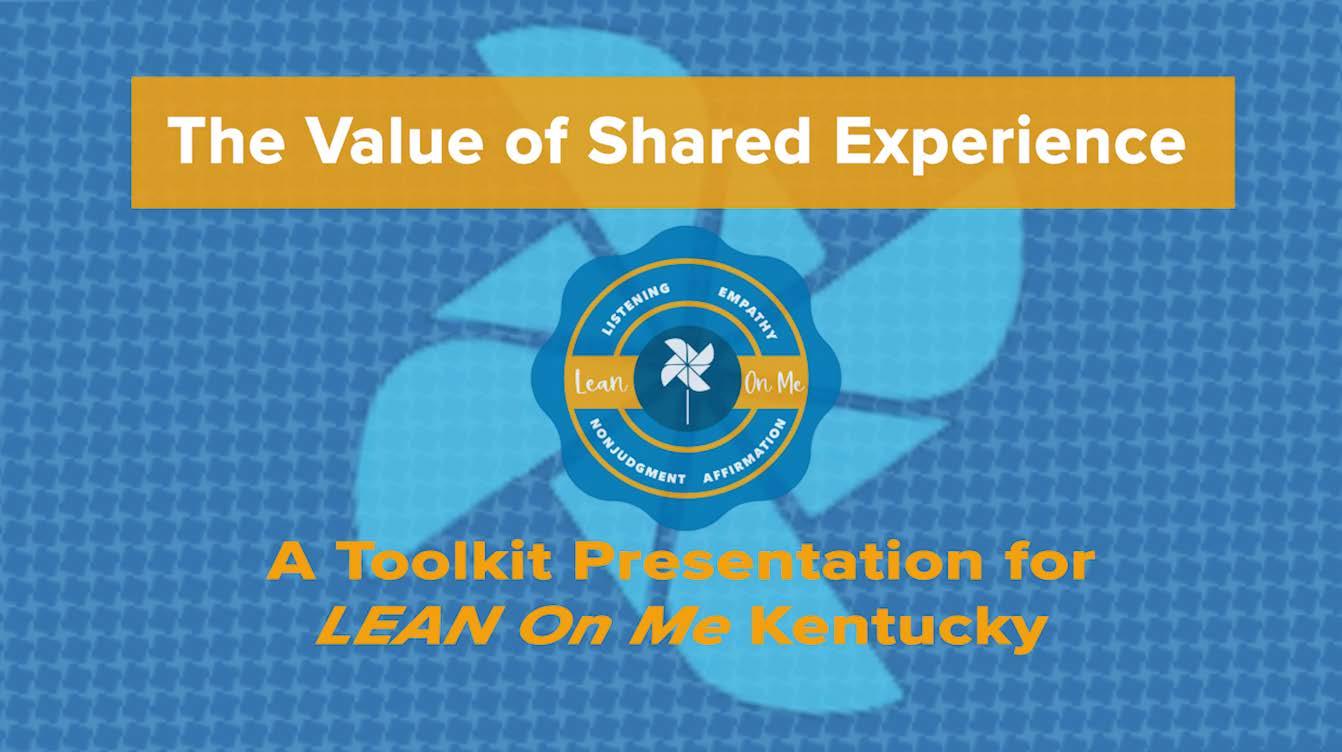
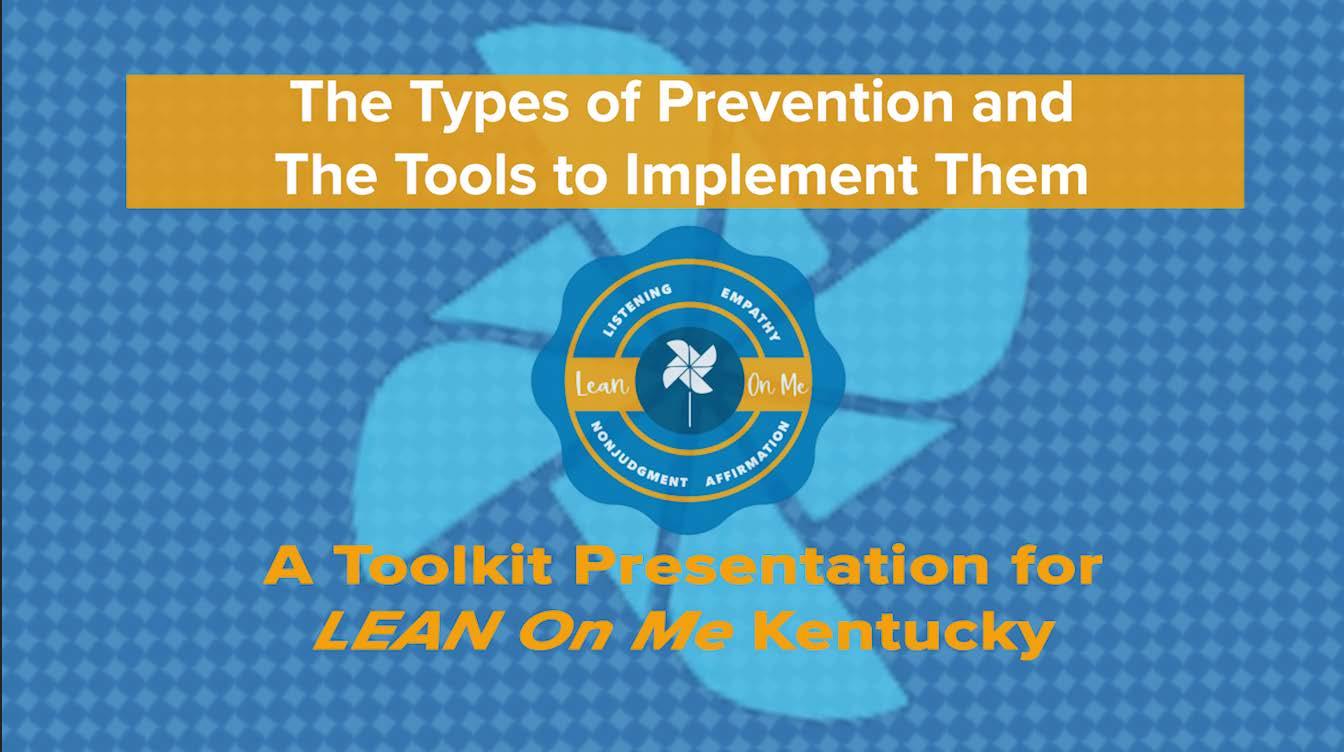

are key. If we’re going to stop putting people in boxes, we will need to start thinking outside of them.
she hopes everyone can find a resource to help build stronger communities. story of overcoming adversity.
“Work together, be aware of community resources. Remember we are all united as one to work together for the greater good of our people”
-Focus Group Participant (Cumberland Region, July ’22)
THE HOW
Okay, so we’ve laid the foundation. Below are six protective factors that, when present, have the ability to strengthen families and communities.
Social & Emotional Competence of Children
Families teach children how to have healthy relationships
Parental Resilience
Families bounce back
changes. He found a community of people to help him. Within his community he was able to start looking inward to find healing.
service professionals. She believes the hard work has to start within. The most effective service providers know their limitations and how to ask for help.
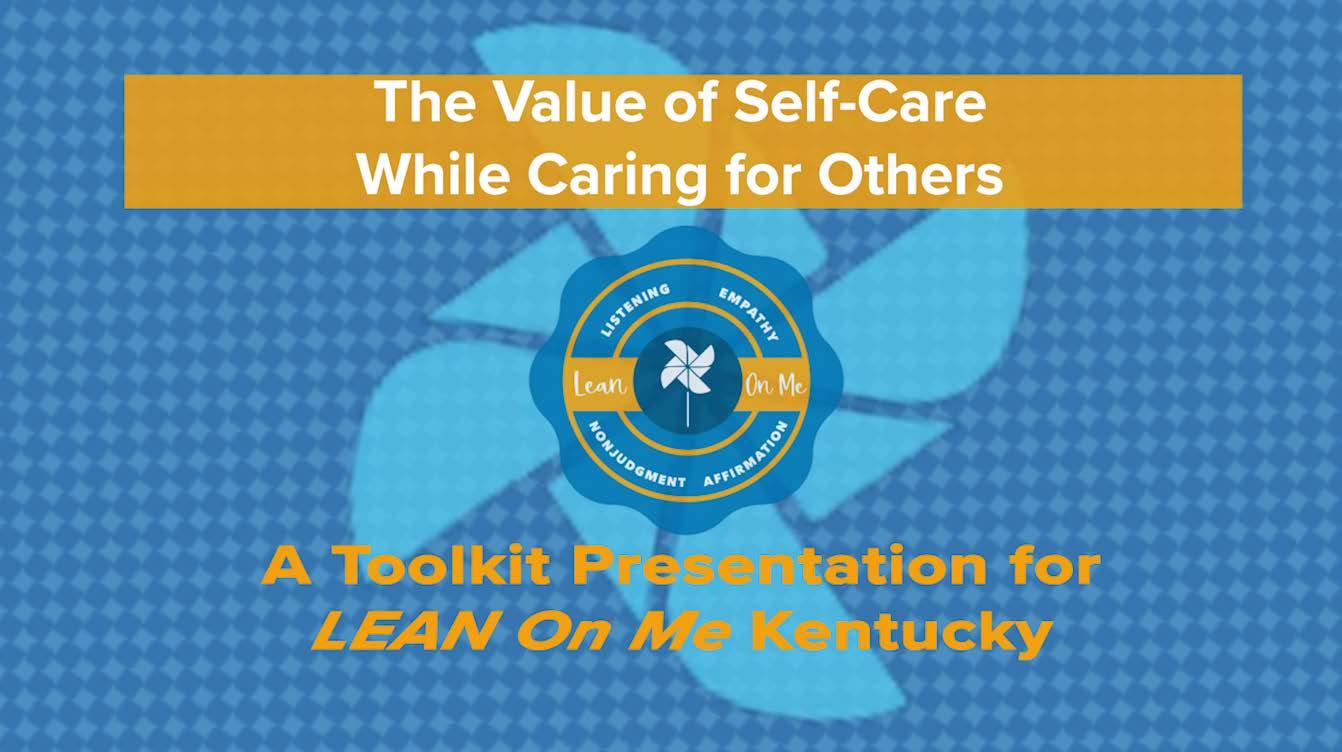
Knowledge of Child Development
Families learn how their children grow and develop
the commonwealth. He believes that fatherhood programs are childcare programs and that we need to support the whole family.
For Kentucky specific information related to Protective Factors, visit Kentucky Strengthening Families at https://kyecac.ky.gov/families/ky-family-thrive/Pages/default.aspx


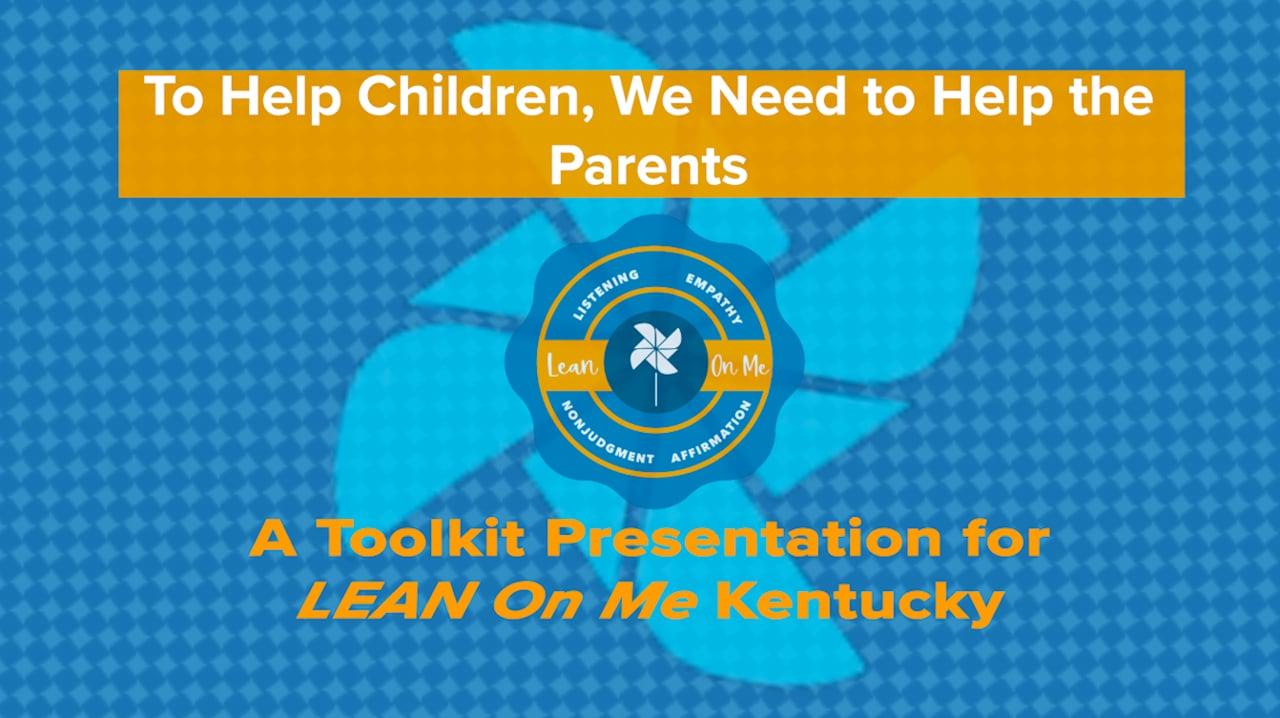
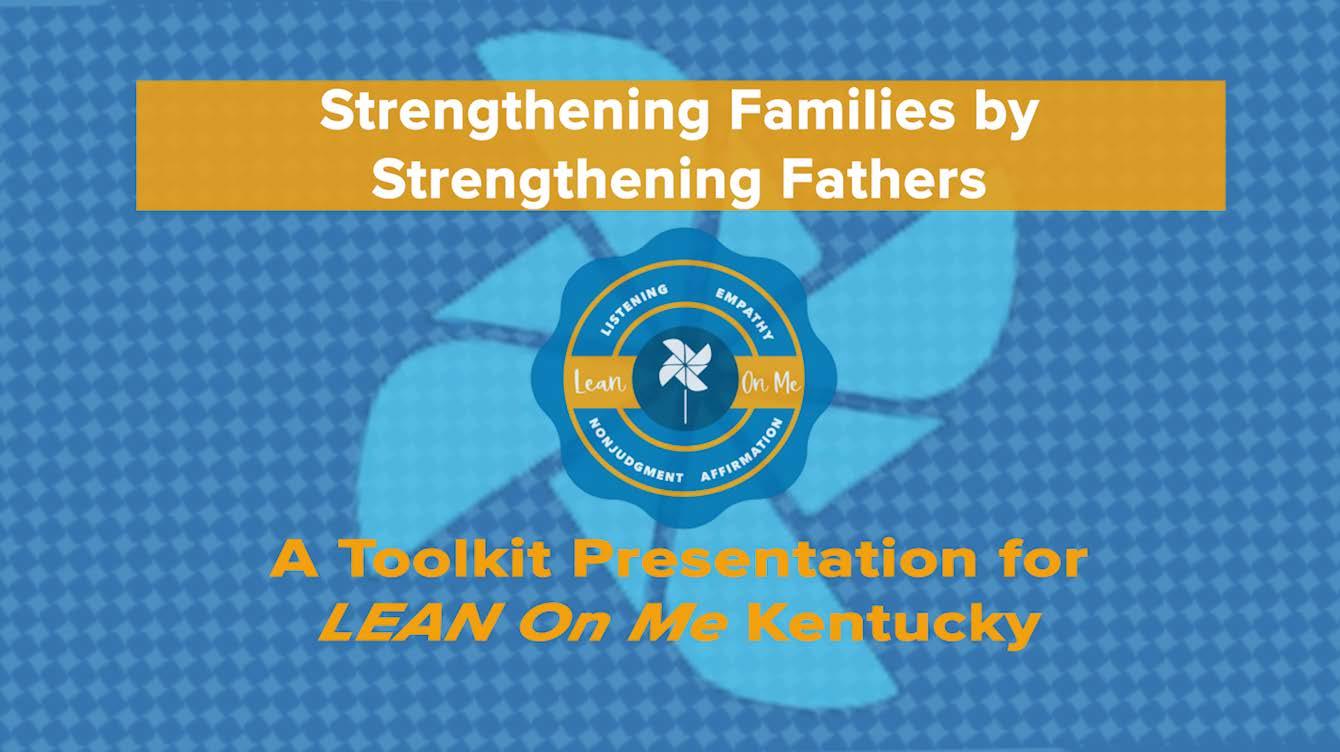




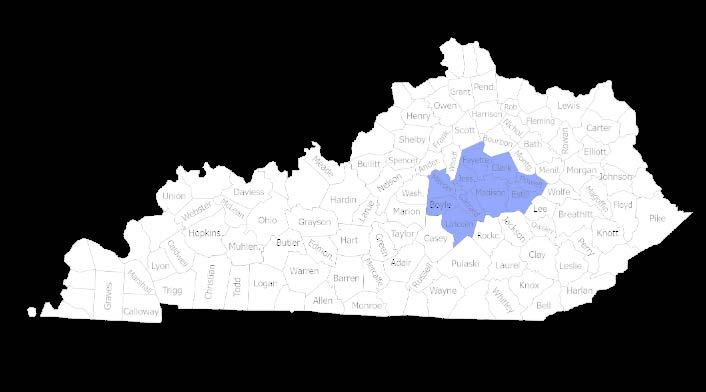

“In order to teach our children healthy social skills, we adults have to model them”
― Focus Group Participant (Southern Bluegrass Region, June ’22)
THE WHO… … IS YOU!
Start by looking in your own community. Maybe a young family has just moved in. Maybe there’s a new parent that could use some help with groceries. Get to know your neighbors. Ask them if they need help and offer specific tasks to ease their burden. A simple act of kindness towards your neighbors can go a long way. If you’re looking for them, opportunities to help are always present by practicing LEAN On Me; Listening. Empathy. Affirmation. Non-judgement.
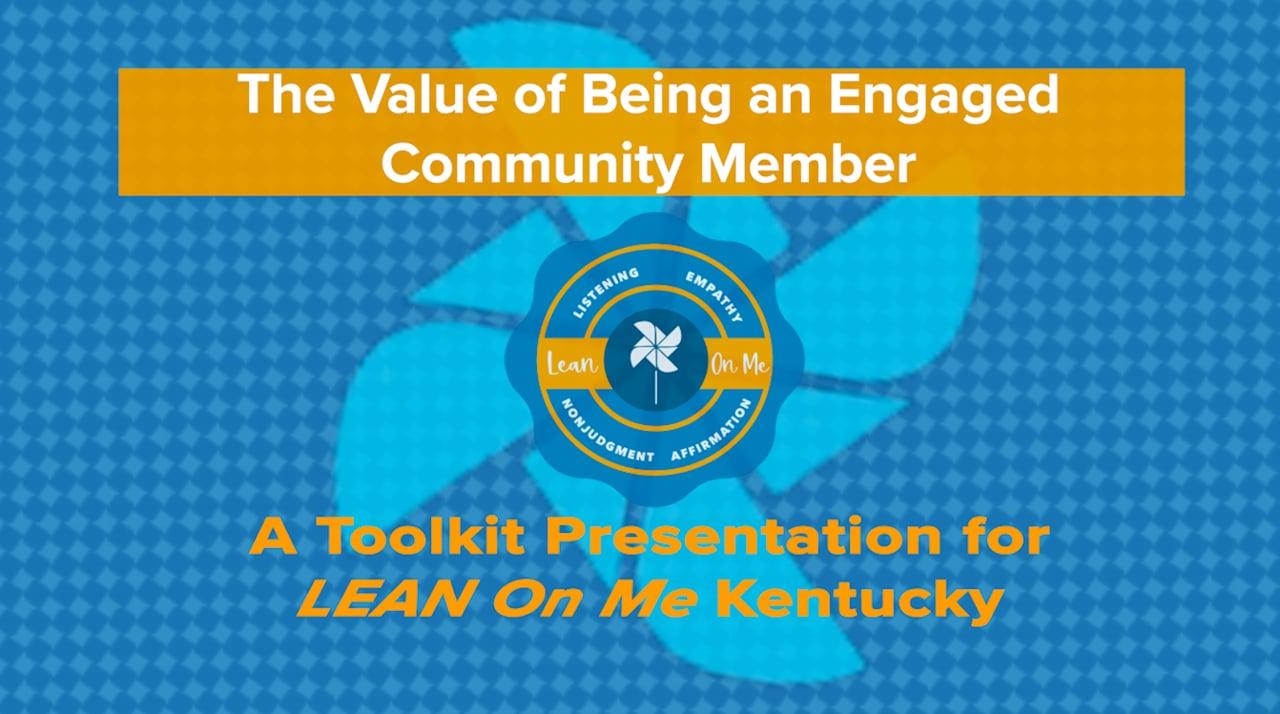

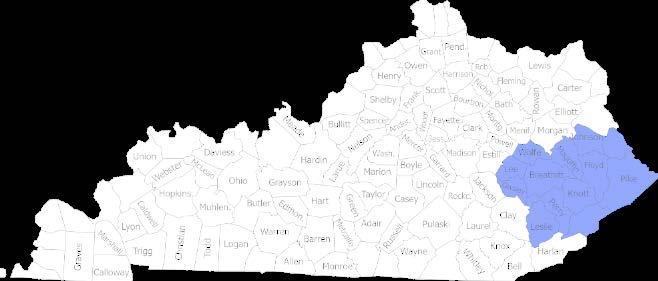
Teach By Doing
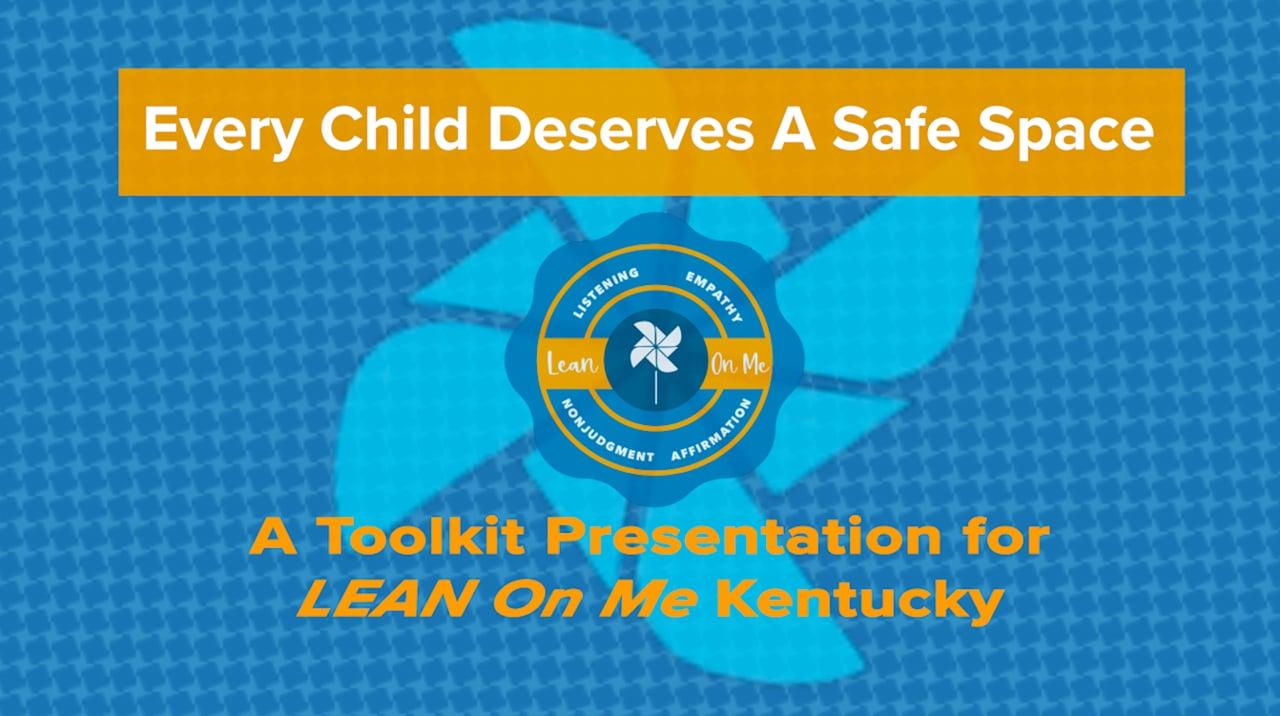
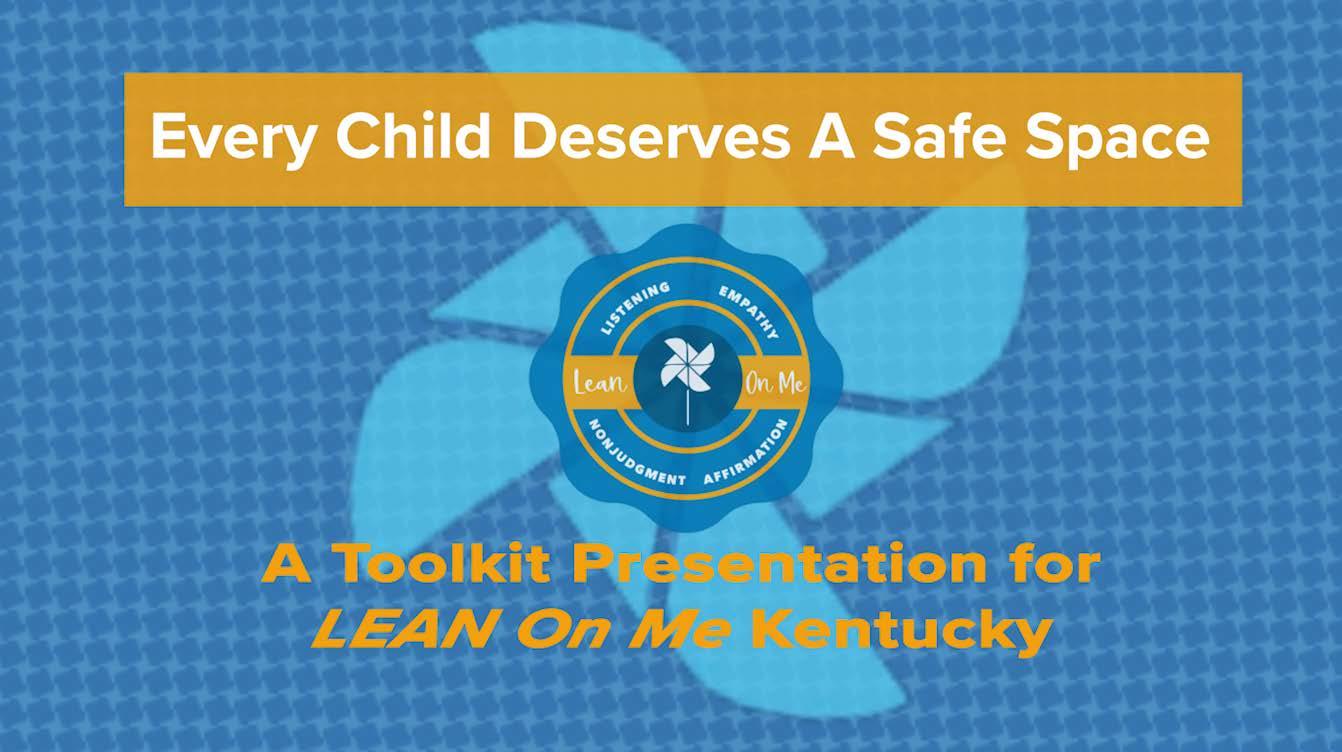
Model appropriate behavior and relationships

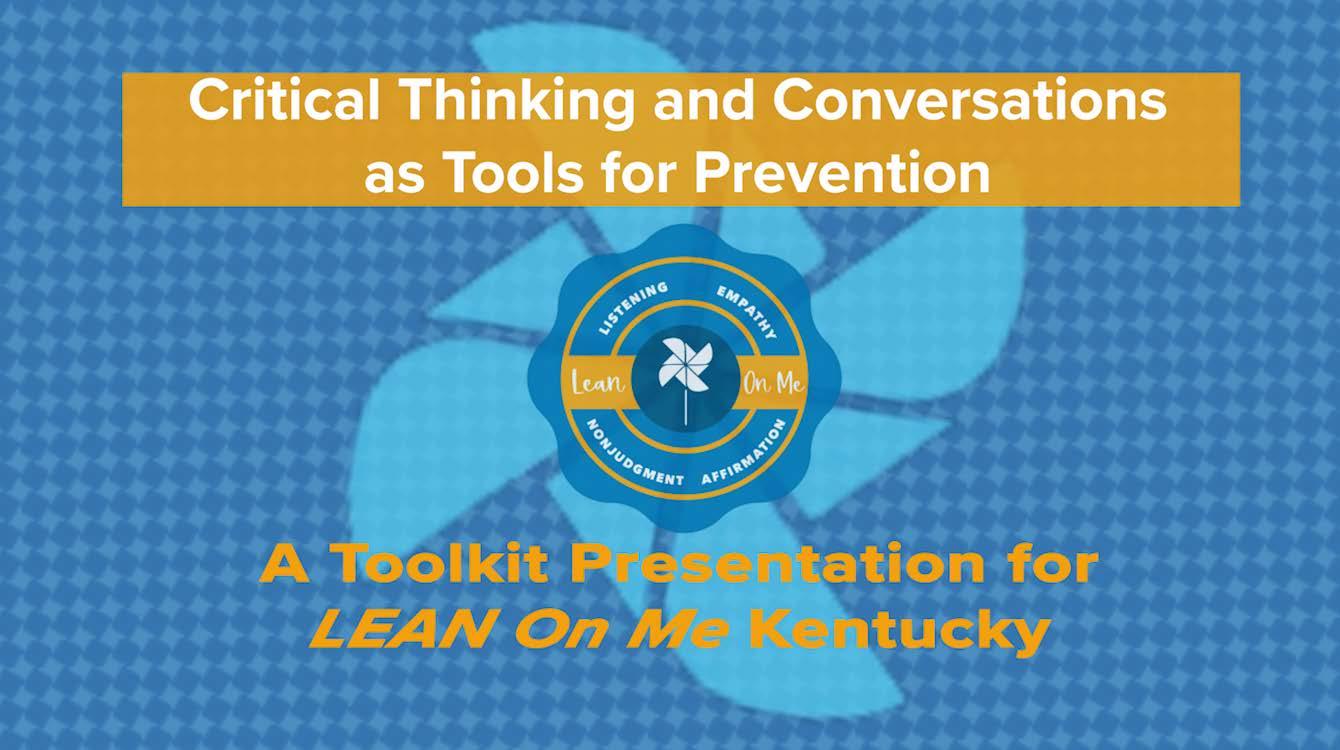
When letting people know how you’re




If it starts with me, how do I start?
“Be familiar with what is out there and what may be needed. Be willing and understand that it is ALL OUR JOBS to help where help is needed and where we can”
- Focus Group Participant (Eastern Mountain Region, July 22)
Sam’s Story


During the research we heard a story about Sam. Sam was sitting on the front stoop in the late afternoon/early evening. Sam looked a little scruffy. A neighbor kept checking on Sam through the window. An hour passed, then another. The
neighbor called the Department for Community Based Services to report child neglect. A social worker came and removed Sam from the house.
What the neighbor didn’t know was that Sam’s parent was stuck at work and the family member who agreed to babysit was sick. Sam’s parent couldn’t afford to pay for childcare.

Supporting and Reporting
So … is this neglect? Or is it poverty? It’s doubtful anyone felt as bad about Sam being alone on the stoop as did the parent. Alas, a terrible situation was made worse as the family was shamed and had to jump through substantial hoops to clear up the situation, many of which required time off of work and additional costs.
All Kentuckians are mandated reporters of suspected child maltreatment. What if EVERYONE chose to be a COMMUNITY SUPPORTER prior to abuse or neglect ever occurring? If you believe a family is struggling with basic needs, stress, or lack of support, reach out and see what help you can provide!

What could’ve happened if that neighbor had gone over and asked if Sam was okay? Brought a snack and checked if the family needed anything?
There may be a risk of being called nosey or being told to mind your own business. These are small risks to take in comparison to the lasting impacts of making a judgment call without the right information.
We couldn’t help but wonder … what if the neighbor chose to do something different? What if they had chosen to be a Community Supporter instead of just reporting the situation to authorities?
Maybe there could have been a different outcome.
If you believe a child to be a victim of child maltreatment or if a child has disclosed abuse to youmake a report! Always believe a child or youth if they disclose abuse. Contact the Kentucky Department for Community Based Services Centralized Intake on Monday - Friday 8:00 a.m. - 4:30 p.m. at 1-800-752-6200 or the Statewide Hotline at 1-877KYSAFE1 (1-877-597-2331) after hours, holidays, and weekends to submit a report.

PERSPECTIVE SHAPES JUDGEMENTS
The fish, the lake and the groundwater: If you have a lake in front of your house and one fish is floating belly-up dead, it makes sense to analyze the fish. What is wrong with it? Imagine the fish is one student failing in the education system. We'd ask: did it study hard enough? Is it getting the support it needs at home? But if you come out to that same lake and half the fish are floating belly-up dead, what should you do? This time you've got to analyze the lake. Imagine the lake is the education system and half the students are failing. This time we'd ask: might the system itself be causing such consistent, unacceptable outcomes for students? If so, how? Now… picture five lakes around your house, and in each and every lake half the fish are floating belly-up dead! What is it time to do? We say it's time to analyze the groundwater.
It goes both ways. Learning how to talk about what you’ve gone through is just as important as listening to others.

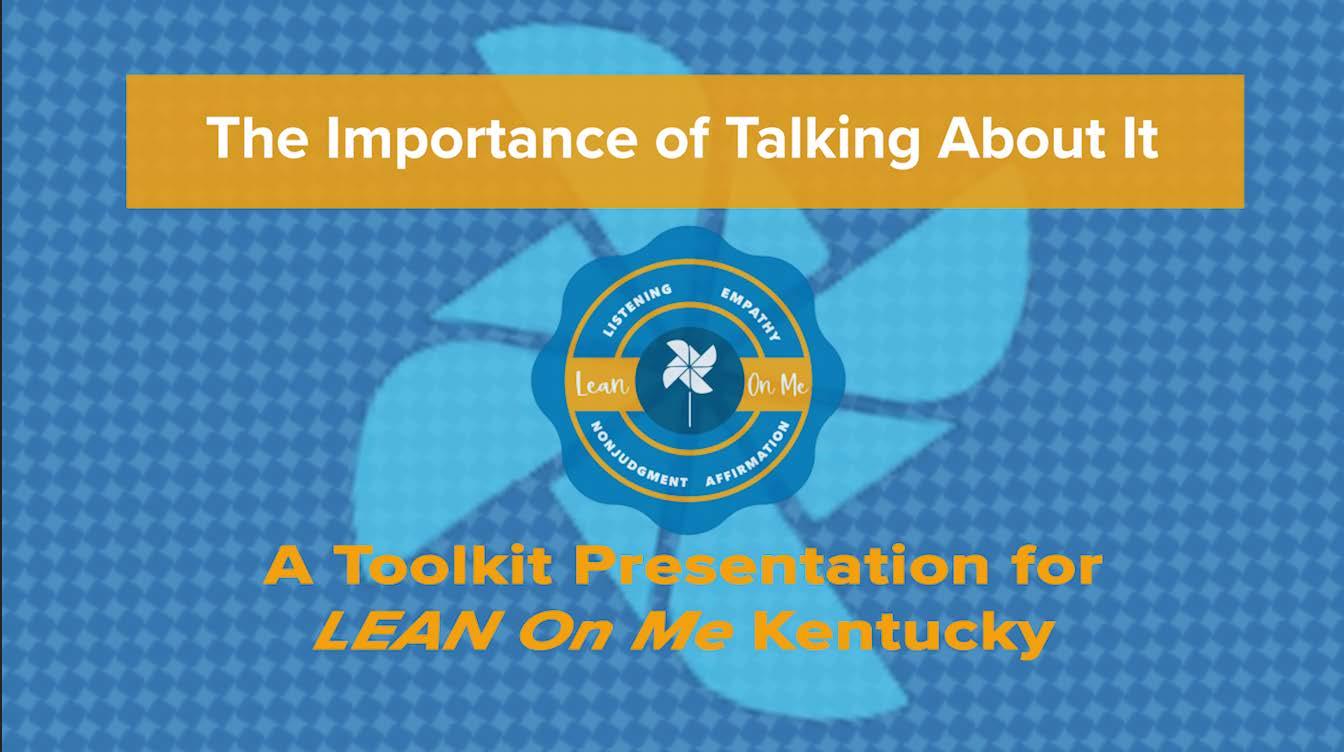
The Groundwater metaphor is designed to help practitioners at all levels better understand and internalize the reality that society is racially structured; and the foundational structure of racism is what causes racial inequity. The Groundwater metaphor is based on three research observations: 1) Racial inequity looks the same across systems; 2) Socio-economic difference does not explain racial inequity; and 3) Inequities are caused by systems, regardless of people's culture or behavior.

Source: https://racialequityinstitute.org/groundwater/

PREVENTION IS WORTH THE INVESTMENT
$220 million dollars are spent each day in the U.S. addressing maltreatment after it has occurred. Research shows for every $1 we spend in prevention; we later save $4 on services after abuse has occurred. Further works show that by addressing poverty, racism, and education, incidents of child abuse and neglect can be reduced.

Nearly 85% of families investigated by Child Protective Services earn below 200% of the federal poverty line ($43,920 for a family of 3 in 2021)
Families living below the poverty line are 3x more likely to be substantiated for child maltreatment


Every $1 spent on FPP services saved $2.85 in out of home care costs FPP is 94% effective in avoiding entry into out of home care (the placements of children when removed from their home due to abuse/neglect)
Hall,
$
$ The Family Preservation Program (FPP) works! Prevention Cure Helping families in crisis by improving parenting and family functioning while keeping children safe
Sources: Chapin
Prevent Child Abuse America The 2019 share of children by racial category under age 18 who live in families with income below the federal poverty threshold (e.g., $25,926 per year for a family of 4)
OUTSIDE RESOURCES










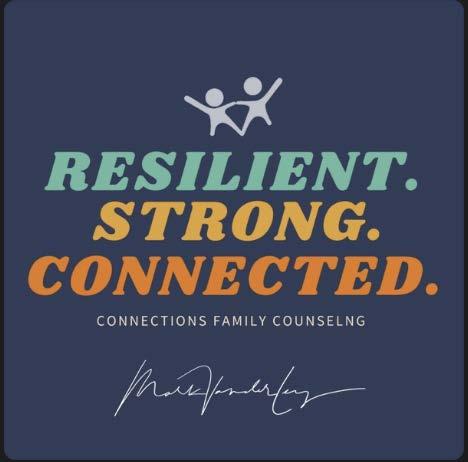










Podcasts
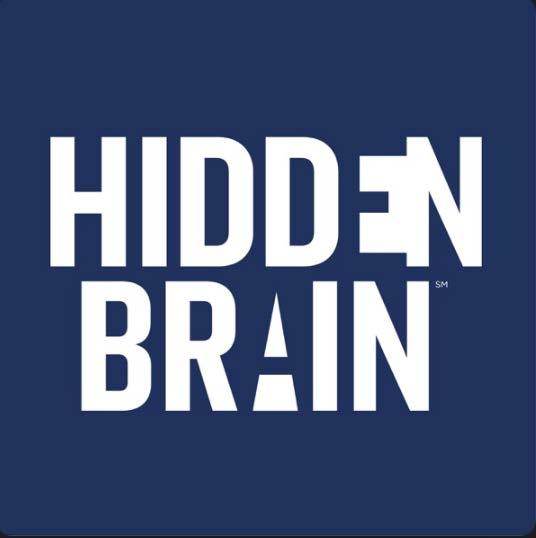


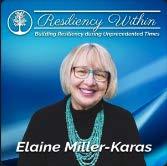
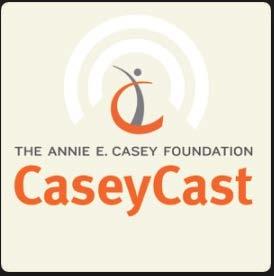
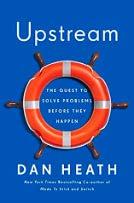
Books


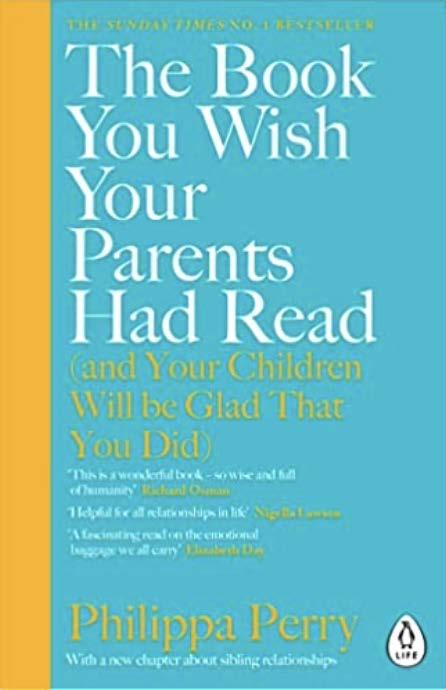
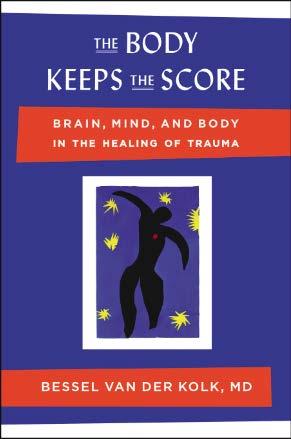
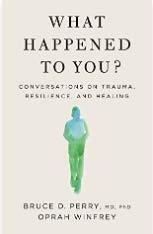



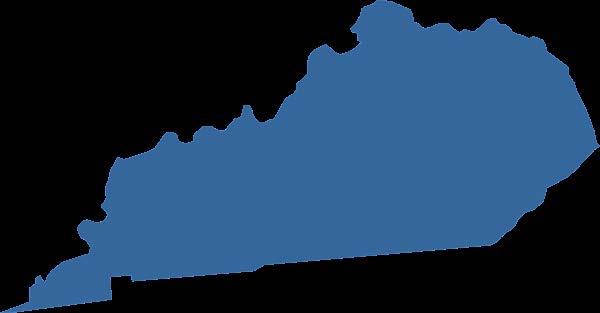













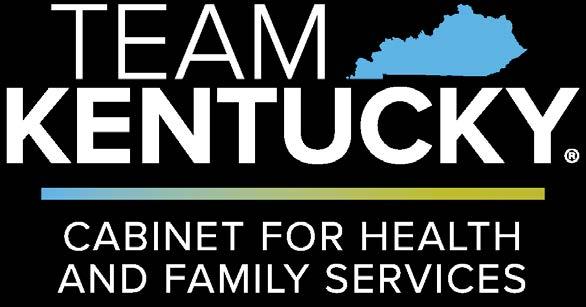



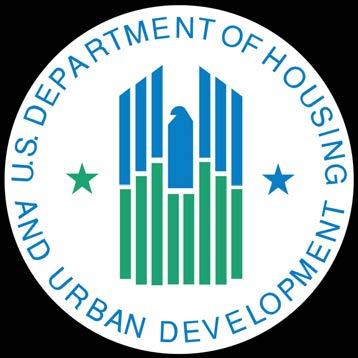

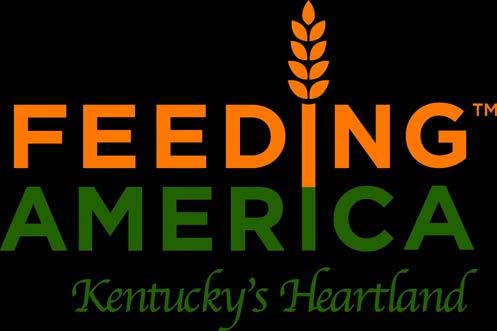





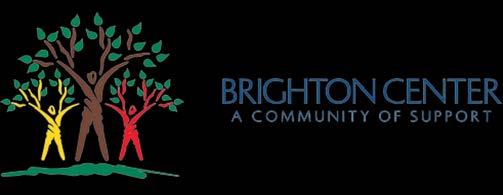












TRAINING & SUPPORT 1-800-CHILDREN A free, confidential information and support hotline Scan for Full List of PCAK Trainings
Dear Community, I ______________, choose to be a Community Supporter, available for you to LEAN On Me.




I pledge to do better.
I pledge to help more and to ask for help when I need it.
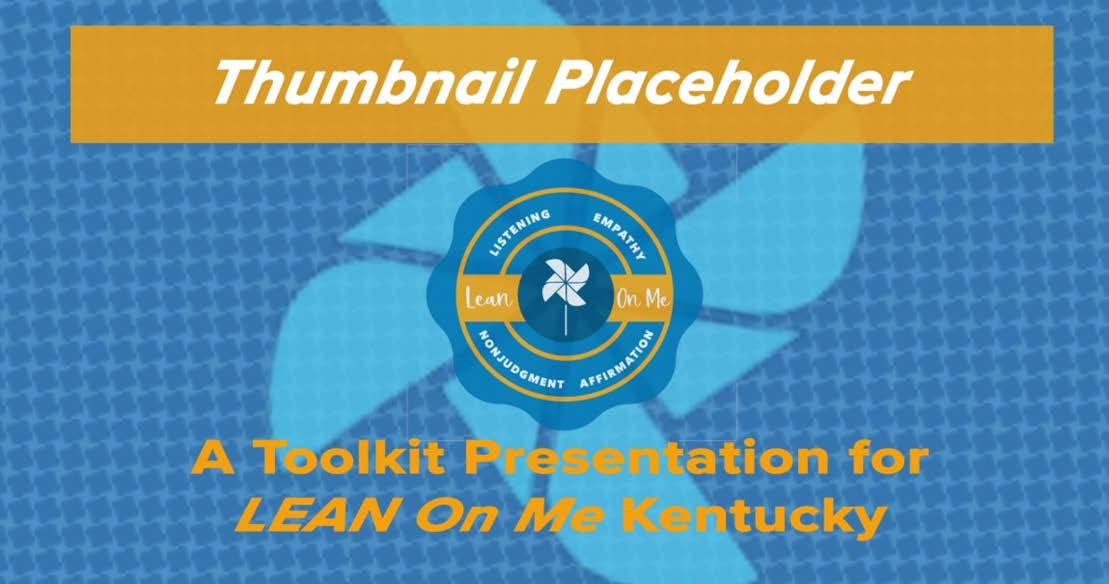




Signed, ____________________
A PLEDGE









You have the tools, now it is time to act. Take the pledge, join the conversation, and let’s continue to make the world a better place … because
FOOTNOTES
https://pcaky.org/ https://chfs.ky.gov/agencies/dcbs/Pages/default.aspx https://chfs.ky.gov/agencies/dcbs/oc/Pages/start.aspx
https://www.childwelfare.gov/topics/preventing/promoting/protectfactors/ https://www.chapinhall.org/wp-content/uploads/Economic-and-Concrete-Supports.pdf
https://www.aecf.org/work/past-work/making-connections
https://www.cdc.gov/ncbddd/childdevelopment/positiveparenting/index.html
https://cssp.org/wp-content/uploads/2018/08/HO-2.1e-CW-Social-Emotional-Competence.pdf https://www.cdc.gov/violenceprevention/pdf/essentials-for-childhood-framework508.pdf https://www.lena.org/engaging-resilience-with-responsive-caregiving/
https://www.cdc.gov/ncbddd/childdevelopment/positiveparenting/index.html https://www.nationalparenthelpline.org/find-support
https://cssp.org/wp-content/uploads/2018/08/ProtectiveFactorsActionSheets.pdf
https://racialequityinstitute.org/groundwater/

https://arborky.org/ https://pcaaz.org/mandated-supporters/ https://diversity.nih.gov/sociocultural-factors/implicit-bias-training-course https://www.chapinhall.org/ https://acrobat.adobe.com/link/review?uri=urn:aaid:scds:US:7a4007ad-1061-3dbd-b083-6f23b2e39ca8
Scan for a full bibliography of the LOMK toolkit



Cards

































 ― Focus Group Participant (Eastern Mountain Region, July ’22)
― Focus Group Participant (Eastern Mountain Region, July ’22)














































































































